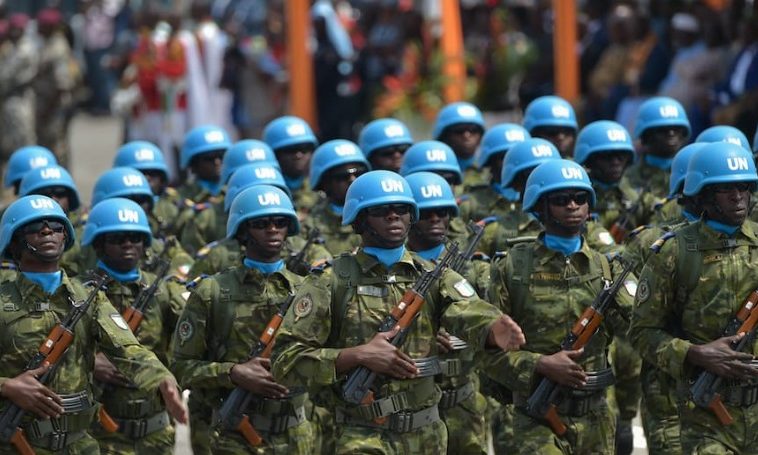In the ever-evolving landscape of global defence, Africa is carving out its path to fortification and technological prowess. The continent’s strategic direction has become the cornerstone for innovative strides in military technology and defence systems. Embracing this momentum, African nations are unleashing an era of remarkable advancements in their defence industries, bolstering their territories like never before.
Africa’s shift towards strengthening its military capabilities is unmistakable. Across all 54 countries, significant investments have been made in infrastructural enhancements to penetrate the defence sector. However, challenges persist, hindering the full potential of the continent’s foot warriors in safeguarding Africa. Despite this, Africa’s stride towards creating formidable defence mechanisms remains resolute.
Let’s have a look into the dynamic landscape of the top ten defence-related industries, each contributing uniquely to Africa’s rising stature in the global defence arena:
Founded in 1992, Denel SOC Ltd. is a state-owned aerospace and military technology firm in South Africa. It was established when Armscor’s manufacturing subsidiaries were divided to become the South African Defence Force’s (SADF), presently known as the South African National Defence Force’s (SANDF) procurement agency.
The manufacturing divisions were then combined under Denel as divisions. It is the biggest state-owned armaments company in South Africa. Since 2015, the firm has been dealing with serious financial issues, and in 2021, it was revealed in Parliament that Denel was in danger of going bankrupt.
The company attributed its problems to dwindling local defence budgets, damaged ties with important clients and suppliers, difficulty hiring or retaining qualified staff, continuous pay disputes, and a loss of Fitch ratings.
Algeria is Africa’s most crucial defence market, with a projected $10 billion defence budget for 2022, and it ranks sixth globally in terms of arms imports. The tiny domestic military sector in Algeria produces explosives, warships, light weapons for ground transportation, and arms licenced by China and Russia. Algeria’s need for new defence systems and equipment is driven by military modernization, terrorist threats from Libya and the Sahel, monitoring of the oil and gas field, and a desire for regional military supremacy. By 2023, the industry is projected to reach a value of $11.9 billion; by 2025, expenses will reach $12.1 billion.
Algeria gets the majority of its equipment from foreign vendors due to the size of its domestic defence sector. With about 75% of the market share overall, Russia enjoys a favourable position thanks to long-standing bilateral defence cooperation and Algeria’s rivalry with Morocco, a neighbour supplied by the West. Industry observers predict that Russia will keep meeting most of Algeria’s demands.
The creation and management of military factories in the Arab Republic of Egypt are under the purview of the Egyptian Ministry of Military Production, which Major General Engineer Ibrahim Younis currently leads. Ibrahim Younis assumed ministry leadership inside Ibrahim Mahlab’s church in February 2014. Egypt is one of the most vital hubs for defence technologies today, thanks to its enormous and distinctive portfolio that includes weapons and aircraft, among many other things.
The South African Department of Defence’s armaments procurement arm is called Armscor, or Armaments Corporation of South Africa (stylized as ARMSCOR). It was first founded in 1968 as an arms manufacturing company [2], mostly in reaction to the UN’s international sanctions against South Africa for its apartheid policy, which went into effect in 1963 and was formalised in 1977.
The Nigerian Armed Forces operate the Defence Industries Firm of Nigeria (DICON), the country’s state-run defence firm [2]. It is in charge of producing both civilian and defence-related goods.
The heavily guarded city has been concentrating on problems related to its development, research, and other regional output. This is why, among other things, the nation has been putting more effort into manufacturing its military vehicles. Ethiopia has a strong sense of technological breakthroughs, contributing to its technical skills, even though it is not on par with other African countries. Ethiopia’s army is the Ethiopian National Defence Force (ENDF). The Ethiopian Ministry of Defence is in charge of it. Ethiopia’s army has been around for more than a century. But the ENDF, in its current form, is relatively new—it was created in 1996. There are 162,000 soldiers, roughly the same number as in Austria.
As its name implies, Rheinmetall Denel Munition (RDM, South Africa) is a joint venture between the Denel Group in South Africa and Rheinmetall in Germany. The manufacture and production of ammunition is a significant area of focus for Rheinmetall Denel Munition. Because of this, the partnership between these two organisations integrates technological advancements from both nations, enhancing Africa’s defence capacities. Africa has benefited immensely from this collaborative effort.
An Israeli corporation called Aeronautics Ltd. (formerly known as NETS Integrated Avionics Systems) specialises in producing unmanned aerial systems for the military. Since its founding in 1997, the business has supplied more than 20 defence, military, and homeland security clients in 15 nations with its products. [/2] [Requires update] Israel’s Yavne is its headquarters.
The top management of Aeronautics comprises prominent individuals from Israel’s political, financial, and defence domains. Amos Mathan, the former CEO of Soltam Systems, is currently the company’s CEO. Yedidia Yaari, a retired vice admiral who led the Israeli Navy as its commander-in-chief from 2000 to 2004 and served as president of Rafael Advanced Defence Systems Ltd., a defence company, from 2004 to 2015, is the board’s chairman.
Israeli billionaire Avihai Stolero and Rafael Advanced Defence Systems completed the company’s acquisition on September 2, 2019.
Sudan’s state-run defence company is called the Military Industry Corporation. It is in charge of producing a large variety of defence hardware, including guns, artillery, and ammunition.
The Ministry of Defence issued a national decree in 1993 creating the MIC, which brought together the existing defence installation and manufacturing facilities. Since 2013, when MIC’s head of external relations, Ali Othman Mahmoud, stated that local manufacture is being encouraged to satisfy the demands of the Sudanese military and export any surplus materials overseas, MIC has worked to promote more significant sales in Africa.
With its primary focus on military and sports ammunition, Zimbabwe Defence Industries (Pty) Ltd. (ZDI) is a state-owned armaments manufacturer and supplier in Harare. It has also produced field mines, mortar rounds, and light armoured fighting vehicles like the Gazelle FRV. ZDI was involved in mediating significant weaponry agreements between China and several African nations, including the Republic of the Congo, in the late 1990s. Due to the ensuing economic downturn in Zimbabwe and the depreciation of the Zimbabwean dollar relative to other major global currencies, ZDI is now only able to sell used military hardware from the Zimbabwe Defence Forces.
In the future, Africa will continue to be highly prioritised and well-guarded if countries on the continent continue to invest in their defence systems. As Africa forges ahead, prioritising and fortifying its defence systems, the continent’s commitment to technological innovation and indigenous manufacturing heralds a promising future. With sustained investments, Africa stands poised to create a robust, self-reliant defence ecosystem, ensuring security and stability across its territories.


